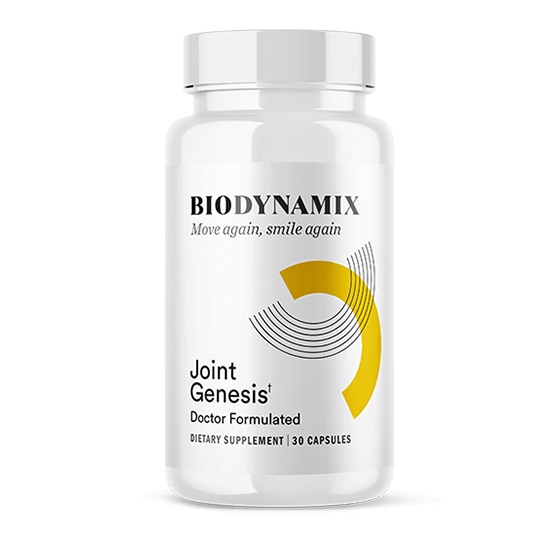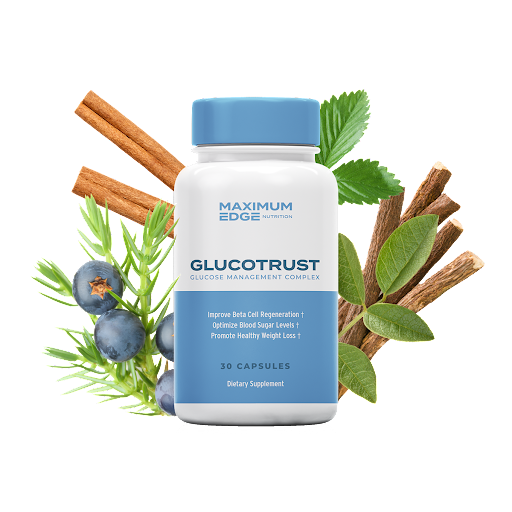"This white liquid is not necessarily bad,
as long as you know...
...The Drawbacks Of Drinking Milk."
Why Cow's Milk May Not Be Everything You Think.
It's important to understand that mother's milk is excellent nourishment for human babies, but its composition is very different from cow's milk. There's no disputing the fact that cow's milk is excellent for calves. So why are humans the only mammal that continues to drink milk into adulthood?
Perhaps you've heard that cow's milk is a nutritional powerhouse, providing essential nutrients that support muscle growth, and overall well-being. Sure, that's a reasonable conclusion to make based upon conventional wisdom.
But many scientific studies have shown an assortment of detrimental health effects directly linked to milk consumption. So here are the considerations to Not drink cow's milk...
Lactose in Cow's Milk
What is Lactose and Lactase?

Lactose is the natural sugar found in milk (not to be confused with lactase: a digestive enzyme). Health issues can manifest because most people cannot digest this type of sugar. There's probably a good reason for the inability to digest the milk sugar ‒ it's called nature.
All babies are born with lactase in their intestines and can obviously handle milk digestion. But as they grow older, the lactase enzyme decreases ‒ since adults are already weened from drinking milk as an infant, there is no reason to continue digesting lactose.
But if you continue drinking cow's milk, you may experience some of these uncomfortable symptoms from the lactose...
Common Symptoms of Lactose Intolerance
Be aware that lactose intolerance is actually a common condition. Lactose intolerance occurs when the body lacks the enzyme lactase needed to digest lactose in milk and dairy products.
When lactose is not properly digested, it can lead to various uncomfortable symptoms, such as:
Signs of Lactose Intolerance: ∗ Abdominal Pain ∗ Bloating ∗ Gas and Flatulence ∗ Diarrhea ∗ Nausea and Vomiting (in severe cases)
NOTE: This is not a diagnostic chart and should not be used in place of your health professional to determine your recovery program.
These symptoms can range from mild to severe and typically occur within a few hours of consuming lactose-containing foods or drinks. It's important to note that lactose intolerance is different from a milk allergy, which is an immune response to the proteins in milk. Which is the next reason not to drink milk.

A1 Beta-Casein in Cow's Milk
Casein Allergies
Cow's milk allergy is another consideration. A condition in which the immune system reacts abnormally to a foreign substance. In this case, it is an adverse immune reaction triggered by the proteins present in cow's milk. Cow's milk allergy affects adults and even young children. Interestingly, it is the most common food allergy in young children.
There are two main proteins in cow's milk that can cause an allergic reaction:
- Casein, found in the solid part (curd) of milk that curdles.
- Whey, found in the liquid part of milk that remains after milk curdles.
And pertaining to the casein proteins there are two classifications of proteins called "A1" and "A2" that you need to know. To understand the differences between A1 and A2 cow's milk, we need to delve into the protein composition. So bear with me for a moment.
Both A1 and A2 milk contain a protein called beta-casein. But they differ in the specific variant of beta-casein present. In other words, the beta-casein is slightly different in each of the two types of milk. So...
What is A1 and A2 Cow's Milk?
Ok, just a tad more detail and I'll make my point. The A1 cow's milk contains a variant of beta-casein which is simply called A1 beta-casein. Now, here's the important part: When it's digested, A1 beta-casein releases a peptide called beta-casomorphin-7 (also referred to as BCM-7 for short).
Why is this a concern?
Because there are some studies that suggest the BCM-7 may have negative health implications for certain individuals. Like what? It could potentially contribute to digestive discomfort, inflammation, and even chronic health conditions. (More about this in a moment.)
What's noteworthy is the A2 cow's milk, on the other hand, contains a different variant of beta-casein called A2 beta-casein.
But, unlike the A1 milk protein, the A2 protein does not produce BCM-7 during digestion!
So if we go back to our discussion about A1 milk... when someone with a milk allergy consumes cow's milk or products containing it, their immune system mistakenly identifies these proteins as harmful invaders and releases antibodies to fight against them. This immune response leads to various symptoms and health problems.
Cow's Milk Allergy – Health Issues
Cow's milk allergies can cause significant health problems, particularly if the allergen is not identified and avoided. Cow's milk allergies can manifest in a range of symptoms, both immediate and delayed. Some of the potential health issues include:
Signs of Milk Allergies: ∗ Hives ∗ Skin Rashes ∗ Abdominal Pain ∗ Wheezing ∗ Nausea and Vomiting ∗ Swelling of Lips, Face, or Throat ∗ Cramping ∗ Diarrhea ∗ Difficulty Breathing ∗ Bloating ∗ Runny Nose.
Also linked to: Type 1 Diabetes ∗ Heart Disease ∗ Infant Death ∗ Autism ∗ and Digestive Problems.
NOTE: This is not a diagnostic chart and should not be used in place of your health professional to determine your recovery program.
As you can see, A1 cow's milk allergies from the beta-casomorphin-7 can cause a range of health problems. So, if you experience any of these symptoms after consuming cow's milk or dairy products, it is recommended to get allergy testing to confirm the presence of a cow's milk allergy. Or switch to the A2 type milk products, which some grocery stores now carry.
Ok, here's another drawback of drinking milk from cattle...

Calcium Phosphate in Cow's Milk
It's accepted that cow's milk is known for its high calcium content and has long been hailed for promoting bone health and strong teeth. BUT, there's something they are not telling you about the calcium in cow's milk. So I will.
What is Calcium Phosphate?
It's accepted that cow's milk is known for its high calcium content. But the problem is milk also contains a high amount of phosphorus too. In fact it has way more phosphorus than calcium in it.
Milk contains calcium phosphate which is a compound that contains both calcium and phosphorus. Although milk contains high amounts of calcium, it contains about 4 times more phosphorus in comparison. Why is that a concern?
Because this high phosphorus content in milk can lead to an imbalance in the body's calcium-to-phosphorus ratio ‒ which can cause some health risks, such as...
Weak Bones (Osteoporosis)
What?
That’s right... weakened bones and teeth!
Here's what is happening.
Contrary to popular belief, the high phosphorus content in milk can hinder the body's ability to utilize the calcium for bone health. The excessive phosphorus in milk binds to calcium, rendering it unavailable for absorption by the body.
In fact, milk can deplete the calcium from your bones to neutralize the phosphorus content. This depletion of calcium from the bones can have detrimental effects on bone health, ultimately contradicting the perceived benefits of milk consumption. Make sense?
So to summerize:
Phosphorus binds to calcium. This binding together forms the compound calcium phosphate. And since milk has way more phosphorus than calcium there's very little available calcium remaining...
Which makes the calcium unavailable for absorption (especially if it's pasteurized). And to make matters worse, milk depletes the calcium from your bones!
Surprised?
So even though milk contains calcium, it ends up robbing your bones of that crucial mineral to neutralize the phosphorus. This suggests that the idea of milk preventing conditions like osteoporosis may not be entirely accurate. But the sad truth is that most mainstream health practitioners ignore these proven facts.
Ok, moving right along to the last reason you may not want to consume milk.

Recombinant Bovine Growth Hormone (rBGH) in Cow's Milk
One topic that I want you to know about is the potential health problems associated with the residue of growth hormones and other chemicals found in cow's milk. Understanding these factors can empower you to make informed decisions about your nutritional choices.
What is Recombinant BGH?
Lets define these terms first.
Recombinant: something that is genetic engineered in a lab.
Bovine: a cow.
Growth Hormone: a compound that makes cells grow bigger and faster.
Putting it all together, Recombinant Bovine Growth Hormone is a synthetic hormone (man-made) genetically engineered in a laboratory that is injected into cows.
Nowadays, most dairy cows are administered with this genetically engineered form of bovine growth hormone (rBGH). The purpose is to artificially increase milk production. It makes the cow grow and produce milk faster than normal, so the farmer can make more money.
In addition to hormones, the presence of chemicals in cow's milk is another area of concern. Cows may be exposed to pesticides, antibiotics, and other chemicals through their feed or environment, which can also end up in their milk. Regular consumption of these chemicals may negatively impact our health too.
Health Issues of rBGH and Chemical Residue:
- Hormonal Imbalances: Some studies suggest that the consumption of milk containing growth hormones may disrupt the delicate hormonal balance in the human body. This imbalance may contribute to various health issues, including reproductive disorders, early puberty in children, and potential links to certain types of cancer.
- Antibiotic Resistance: The use of antibiotics in dairy farming can lead to the development of antibiotic-resistant bacteria. When these antibiotics are present in milk, they can contribute to the growing problem of antibiotic resistance in humans, making it harder to treat bacterial infections effectively.
- Cancer Risk: Recombinant BGH also increases blood levels of the insulin-growth factor 1 (IGF-1) in those who drink it. And higher levels of IGF-1 are linked to several cancers and other health problems. So drinking rBGH milk consequently could increase risks of developing breast cancer, for example.
Understanding the potential health problems associated with growth hormones and chemical residue in cow's milk is vital for making informed dietary choices.

Now that you know the drawbacks and potential health risks...
Do you still want to drink cow's milk?
It's somewhat obvious, for the most effective way to manage the health risks, you should... completely avoid drinking cow's milk ‒ You don't need it.

Please share this website or article with all of your friends and family! They will thank you for helping them to think differently about improving their health.
Disclaimer: This site offers health, wellness, fitness and nutritional information and is designed for educational purposes only and is not intended to replace the advice of your doctor. As with any nutritional information, be sure to check with your health care provider before beginning any new program.




